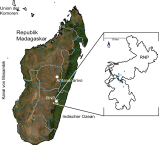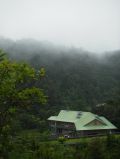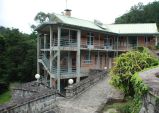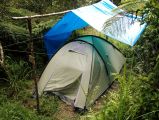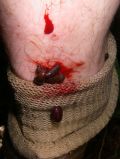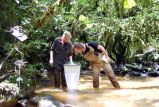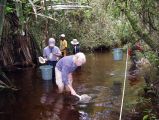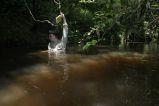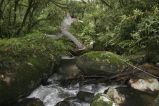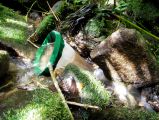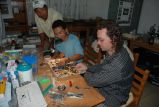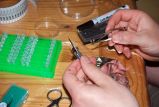TADPOLE PORTAL
Horakoraka ny an’ny sahona fa ny tsiboboka no tompon’ny rano. Madagascan proverb
Field work on Madagascar
Field work on Madagascar can be quite comfortable. Depending on project and region, accomodations with running (warm) water, toilets, and even showers may be available – or not. In the latter case, tents may be a good choice; equipment needs to be carried, either by oneself or local porters. Afterwards I feel a bit sorry but during field work I actually enjoyed having the more comfortable way. Anyway, during rain season there are free rain showers everyday. But clothes may start to mold on the body after some days.
My study area is easily reachable within one or two daytrips from Antananarivo. Most time I have spent at the ValBio research station located in Ranomafana National Park. ValBio offers lab rooms with electricity, warm showers, toilets, and a superb food service. One needs to sleep in tents but at least it feels like adventure and using an additional tarp keeps some of the rain away.
Scientific work on Madagascar always takes part in cooperation with local Universities and all works in National Parks are accompied by local guides. Also my team consisted of German and Madagascan colleagues, students, local guides, and ValBio staff.
We left to the field by foot each morning; there are several trails in the national park. We have sampled stream sections for tadpoles but also for invertebrate larvae (potential competitors and predators) as well as substrates for isotope analysis. We also collected data on several habitat characters in and around the streams. Luckily, waterbodies in the rainforest at this altitude are free of bilharziosis and comparable surprises.
As a note: by now a new amphipod species and a new shrimp genus have been described from our “additional” invertebrate samples.
